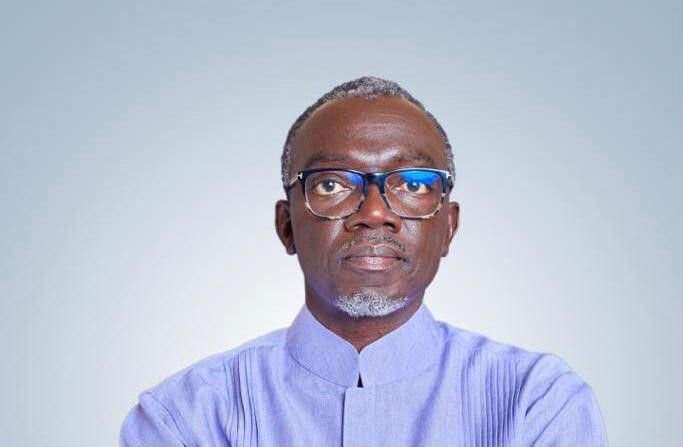According to a report released by the United Nations, the effects of COVID-19 have been far-reaching and severe, leaving negative marks on “decades of progress in global health” that had been achieved up until now. The report pointed out that the fallout from the pandemic “continues to pose challenges to people’s health and well-being globally and is impeding progress in meeting Goal 3 targets.”
The targets of GOAL 3: Good Health and Well-being include:
- By 2030, reduce the global maternal mortality ratio to less than 70 per 100,000 live births.
- By 2030, end preventable deaths of newborns and children under five years of age, with all countries aiming to reduce neonatal mortality to at least as low as 12 per 1,000 live births and under-5 mortality to at least as low as 25 per 1,000 live births.
- By 2030, end the epidemics of AIDS, tuberculosis, malaria and neglected tropical diseases and combat hepatitis, water-borne diseases and other communicable diseases.
- By 2030, reduce by one-third premature mortality from noncommunicable diseases through prevention and treatment and promote mental health and well-being.
- Strengthen the prevention and treatment of substance abuse, including narcotic drug abuse and harmful use of alcohol.
- By 2030, ensure universal access to sexual and reproductive healthcare services, including family planning, information and education, and the integration of reproductive health into national strategies and programmes.
- Achieve universal health coverage, including financial risk protection, access to quality essential healthcare services and access to safe, effective, quality and affordable essential medicines and vaccines for all.
- By 2030, substantially reduce the number of deaths and illnesses from hazardous chemicals and air, water and soil pollution and contamination.
- Strengthen the implementation of the World Health Organization Framework Convention on Tobacco Control in all countries, as appropriate.
- Support the research and development of vaccines and medicines for the communicable and non-communicable diseases that primarily affect developing countries, and provide access to affordable essential medicines and vaccines in accordance with the Doha Declaration on the TRIPS Agreement and Public Health, which affirms the right of developing countries to use to the full the provisions in the Agreement on Trade-Related Aspects of Intellectual Property Rights regarding flexibilities to protect public health, and, in particular, provide access to medicines for all.
- Substantially increase health financing and the recruitment, development, training and retention of the health workforce in developing countries, especially in the least developed and small island developing States.
- Strengthen the capacity of all countries, particularly developing countries, for early warning, risk reduction and management of national and global health risks.
While significant gains were achieved pre-COVID in several areas of health, including immunization, treatment of communicable diseases and maternal, child and reproductive health, the pandemic has severely impacted this progress.
The report further argues that “the pandemic has triggered an increase in the prevalence of anxiety and depression, lowered global life expectancy, derailed progress towards ending HIV, tuberculosis (TB) and malaria, and halted two decades of work towards making health coverage universal. As a result, immunization coverage dropped for the first time in 10 years, and deaths from TB and malaria increased.”
In a survey of 129 countries, 92% confirmed that COVID-19 had interrupted major health services, including immunization, child and maternal health, mental health and treatment of diseases such as TB, HIV and malaria.
The UN has recognized COVID-19 as the leading cause of death, with an estimated 14.9 million people dying as a direct result of the impact of the pandemic in 2020 and 2021. This has reduced life expectancy by one to two years (UN SDG Report, 2022).
Mental health has also been impacted by the COVID-19 pandemic. The UN reports that “in 2020, the global prevalence of anxiety and depression increased by an estimated 25 per cent, with young people and women most affected.”
In 2019, before the pandemic hit, more than 13% of adolescents aged 10 – 19 had a WHO-defined mental disorder. The UN highlights that this translated to “86 million adolescents aged 15 to 19 and 80 million adolescents aged 10 to 14.”
Although progress has been made over the last few years in maternal and child health, disparities in regional progress remain. While the global mortality rate of children under age 5 fell by 14 per cent from 2015 to 2020, “Sub-Saharan Africa remains the region with the highest under-5 mortality rate globally at 74 deaths per 1,000 live births in 2020. This is 14 times higher than the risk for children in Europe and Northern America.” The report affirms
In addition, the report noted that “Childbearing among girls aged 10 to 14 is much more common in countries in sub-Saharan Africa and Latin America and the Caribbean than in other parts of the world. Most countries with measurable levels of early Childbearing have recorded a reduction since 2000.
Data collected on a regional level in Ghana shows that maternal deaths worsened in 2017 in Ashanti, Eastern, Greater Accra and Upper East regions but improved in the other six areas, with Brong Ahafo, Upper West, Central and Western regions attaining the medium-term target of less than 135 per 100,000 live births.
The good news is that expecting mothers are highly aware of the importance of antenatal care and are doing their best to achieve a healthy outcome for themselves and their babies. In 2017, 97% of pregnant women visited a skilled healthcare provider at least once during their pregnancy; 85% made at least four visits, while 26% made eight or more visits. This shows the significant progress made by organizations to reduce infant mortality and; improve public health locally, which is commendable.
The government is committed to providing universal access to quality healthcare for all socio-economic groups. Quality, dependable, environmentally conscious and resilient healthcare infrastructure has been heavily invested in – from increasing the size of Community-Based Health Planning Services (CHPS) compounds to modernizing existing medical facilities and constructing new ones.
Despite the progress, access to maternal and child healthcare services, the prevention of Noncommunicable Diseases (NCDs), Sexually Transmitted Diseases (STDs), as well as Neglected Tropical Diseases (NTDs) has been declining over time, especially in more rural parts. This is further exasperated by costly healthcare costs, insufficient staff, and poor quality services.
According to the UN, “Universal health coverage (UHC) is achieved when all people can receive the good-quality health services they need without facing financial hardship from having to pay for them.” While the UHC index improved from 2015 – 2019, “almost 1 billion people spent more than 10 per cent of their household budget on out-of-pocket health expenses in 2017, and more than half a billion were pushed into extreme poverty due to these out-of-pocket payments.”
Based on the above, it is clear that the impact of the pandemic on global health systems and services is threatening the international communities’ ability to reach GOAL 3. A concerted effort from all UN member countries is thus required to reset and make some gains for the goal of good health and well-being for all.
As Dr Tedros Adhanom Ghebreyesus, Director-General of WHO, rightly said, “Important progress has been made, but we still have a long path to travel to improve how multilateral organizations work together to support countries.”
>>>The writer is an international chartered director and Africa’s first-ever appointed Professor Extraordinaire for Industrialisation and Supply Chain Governance. He is the CEO of PanAvest International and the founding non-executive chairman of MY-future YOUR-Future and OUR-Future (“MYO”) and the “thought-provoking” daily Nyansa Kasa(words of wisdom) series. Professor Boateng is currently the non-executive chairman of the Minerals Income and Investment Fund (MIIF). He was previously the non-executive chairman of the Public Procurement Authority (PPA). For more information on Nyansakasa, visit www.myoglobal.org and www.panavest.com










